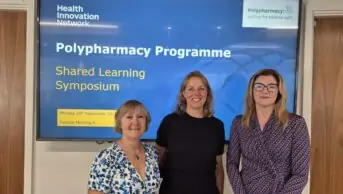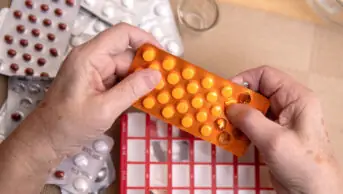
Shutterstock.com
A programme to tackle polypharmacy could have saved over £1m across the NHS in England, a report published by the Health Innovation Network (HIN) has found.
The report, ‘Polypharmacy programme: getting the balance right’, published on 25 September 2025, revealed that HIN worked with over 12,000 healthcare professionals to provide training and support to help them tackle overprescribing, as well as developing resources to help patients in conversations about their medicines.
Under the programme, which was launched in April 2022, more than 1,300 pharmacists and GPs have completed HIN’s Polypharmacy Action Learning Sets training, with feedback showing that 99% of those who took the course would recommend it to colleagues.
An economic analysis of the programme, produced by health economics and evaluation firm, Unity Insights — based on five case study integrated care board (ICB) areas — estimated the financial and environmental value of the interventions.
In these ICB regions, the programme prevented an estimated £20,000 in hospital admission costs and saved £76,000 in medicines expenditure over three years, the report concluded.
If these figures were extrapolated across England, the report suggests a potential total saving of over £1.1m over three years, including £880,000 in reduced drug costs.
The report also found that the programme had a positive environmental impact.
By cutting unnecessary prescriptions in the five case study areas, an estimated 33,002 tonnes of carbon dioxide equivalent had been avoided, the report revealed.
The programme also saw the development of several accessible patient-facing resources, including animations and invitations sent to patients’ phones, which were found to significantly improve patient engagement with structured medication reviews (SMRs).
Clare Howard, pharmacist and national clinical lead for the polypharmacy programme at HIN: “This work has been developed, delivered and evaluated by HIN and is starting to show how, by taking this three pillar approach, we can identify patients at risk from harm and improve the quality of SMRs to ensure that patients, but particularly our older people, are only taking the medicines that they need.
“The past three years have been incredibly hard work but we are proud of the impact to date and hope that this work will continue in the NHS in England.”
Tony Avery, national clinical director for prescribing for NHS England, commented: “Tackling the complex challenge of problematic polypharmacy can sometimes feel overwhelming, so with support from NHS England, HIN has successfully developed structured approaches for healthcare professionals that provide a valuable resource to help ensure that medicines are being used effectively and safely, aligning with patient goals.”


